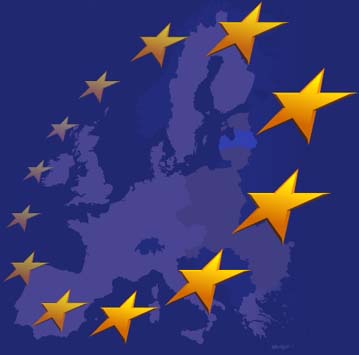|
A political adviser at the Socialists & Democrats Group in the European Parliament said the foreign policy decision-making bodies of the EU — the Council of the EU and the External Action Service (EEAS) — do not consider the Mujahedin-e Khalq (MEK, a.k.a. MKO) a serious alternative to the current government in Tehran. |
 Referring to the MKO’s denunciation of the last month’s trip of Austrian Foreign Minister Sebastian Kurz to Tehran, Eldar Mamedov wrote in an article published on Lobelog.com, “The denunciation came two weeks after the so-called Friends of Free Iran (FoFi), an informal network of members of the European Parliament (MEPs) closely allied to the NCRI, organized a conference calling for regime change in Iran and lauding the NCRI-MEK as the democratic alternative.”
Referring to the MKO’s denunciation of the last month’s trip of Austrian Foreign Minister Sebastian Kurz to Tehran, Eldar Mamedov wrote in an article published on Lobelog.com, “The denunciation came two weeks after the so-called Friends of Free Iran (FoFi), an informal network of members of the European Parliament (MEPs) closely allied to the NCRI, organized a conference calling for regime change in Iran and lauding the NCRI-MEK as the democratic alternative.”
“This is the message that the NCRI and bedfellows like FoFi have been promoting for years in European countries where the MEK has had many more years to lobby for and promote its agenda than in the United States,” he added.
Mamedov noted that after the election of moderate Hassan Rouhani and the “meaningful progress in negotiations over Tehran’s nuclear program,” the MKO “which detests the notion of rapprochement between Iran and the West, has shifted gears and chosen human rights as its casus belli against the Iranian regime.”
He went on to write that the MKO lobbying efforts against diplomacy with Iran are “unlikely to succeed”. “Even with the extravagant funds the MEK has spent on endorsements by political elites, the group’s prominence in the EU is confined only to one part of the EP.”
“The foreign policy decision-making bodies of the EU — the Council of the EU and the External Action Service (EEAS) — do not consider the MEK a serious alternative to the current government in Tehran, as it has virtually no support among the Iranian population,” added the political analyst.
“The dominant EU line now clearly favors diplomacy with Iran, which will, hopefully, lead to a final deal over Tehran’s controversial nuclear program. The more the chances of success for diplomacy increase, the more irrelevant the MEK will become.”
“The MEK’s expensive lobbying and advocacy efforts have also promoted an image of the group as defenders of human rights, especially women rights.” “The group’s strong presence of women, including leader Maryam Rajavi, is sold as evidence of its commitment to gender equality and secularism. Never mind the irony of its members in Camp Ashraf — excluding, of course, Mrs. Rajavi — being invariably dressed in uniformed, almost military suits and headscarves, and never mind the documented human rights abuses by the MEK against its own members.”
“On the operational level, the MEK is extremely persistent and aggressive. MEK lobbyists maintain a constant presence in the coffee bars of EP buildings in Brussels and Strasbourg, or in front of the plenary room in Strasbourg. These are strategic locations from which to bombard MEPs and their staffers with requests to support the MEK. Sometimes, however, they overdo it — one MEP recounted to me about how she had to scream at an MEK activist until they exited the elevator she was using to get to her office. Even MEPs’ offices are targets: the MEK lobbyists have no qualms about entering them uninvited and distributing flyers against alleged “Islamo-fascist tyranny” in Tehran.”
In the end the writer referred to the growing backlash in the European Parliament against the Mujahedin-e Khalq. “In May 2011, a number of MEPs from across the political spectrum sent an open letter to their colleagues warning against legitimizing the MEK and its destructive agenda, including to heavyweights such as the powerful German chair of the Foreign Affairs Committee, christian-democrat Elmar Brok, the leader of the social-democrats, Austrian politician Hannes Swoboda, the president of the party of the European liberal-democrats, Annemie Neyts, and many others.” “The last resolution of the European Parliament on Iran contained no references to the MEK or its demands. And the delegation for relations with Iran, while regularly offering the floor to various opposition groups, resisted giving a platform to the MEK.”
